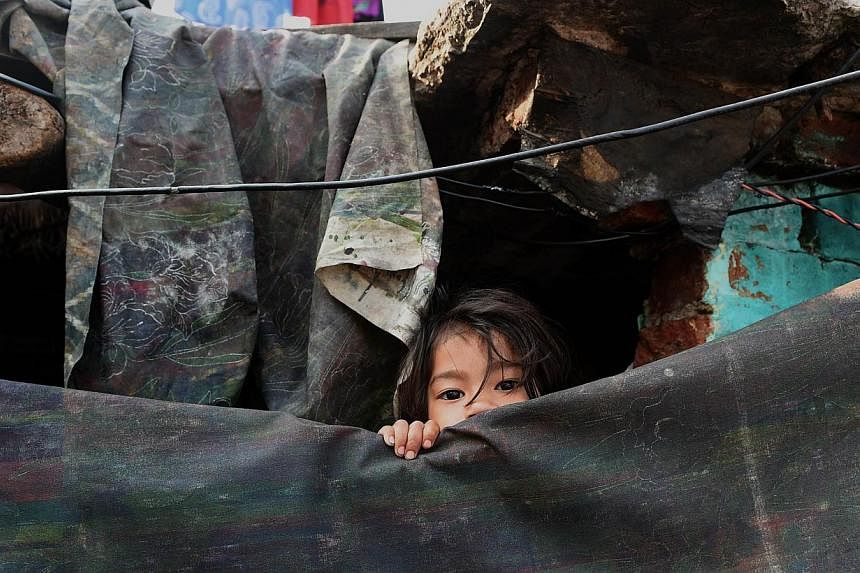LONDON (REUTERS) - The world's rich donor nations must increase their overseas aid budgets and reverse the trend of declining funding for the poorest countries in order to meet a global goal of ending poverty by 2030, an advocacy group said on Tuesday.
Yet governments of the least-developed countries must also contribute by committing to a minimum level of spending to provide basic services, including health and education, for everyone within five years, the ONE Campaign said in a report.
As world leaders prepare to meet at a development finance summit in Addis Ababa in July, ahead of agreeing a new set of development goals later this year, ONE said 2015 could be a pivotal year for the world's most vulnerable people.
The United Nations is expected to adopt 17 Sustainable Development Goals (SDGs) in September, which will replace the eight existing Millennium Development Goals and address issues such as healthcare, education, water, energy and climate change.
"Despite multiple summits to debate these issues, there's a shocking lack of global leadership to deliver genuine, life changing commitments for the world's poorest and hardest to reach," said Eloise Todd, ONE's global policy director.
"New global goals which could set out the roadmap to end extreme poverty will be worth little if leaders fail to back them with an ambitious financing plan," she said.
Official development aid (ODA) from the 28 member countries of the OECD Development Assistance Committee (DAC) was stable in 2014, after hitting an all-time high in 2013, but aid to the poorest countries continued to fall, according to the DAC.
Less than a third went to the least developed countries, most of which are in sub-Saharan Africa, where almost half of the population live in extreme poverty on less than US$1.25 a day, said ONE, which was co-founded by Irish rocker Bono.
Increasing that share of the aid to 50 percent would have made an extra US$26.5 billion available last year for the world's poorest people, the report found.
ONE also urged the DAC countries to meet the United Nations target of spending 0.7 percent of their national wealth on ODA by 2020. Only Britain, Denmark, Norway, Sweden and Luxembourg have met the target to date, according to the DAC.
Governments of the least-developed countries should increase domestic revenues, by implementing fair tax policies and curbing corruption, to help them address a funding gap of US$34.5 billion to deliver basic social services to everyone by 2020, ONE said.
They should also invest in agriculture and energy to support sustainable growth, and focus on investments in women and girls, who are more effective at lifting communities out of poverty than men, the report said.

